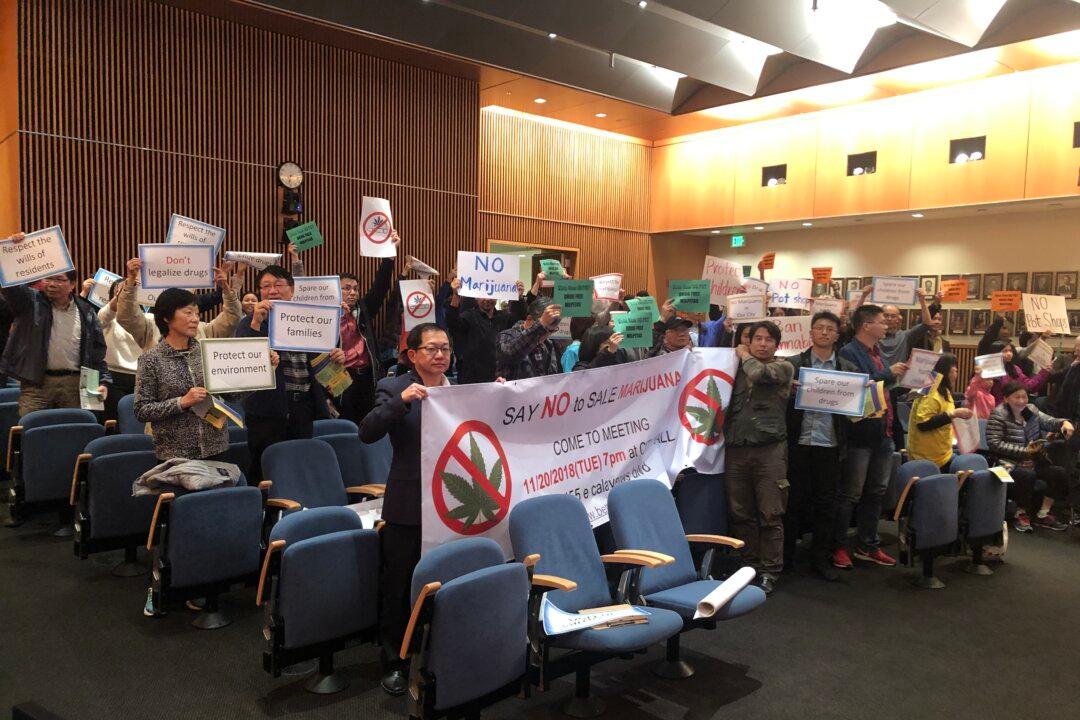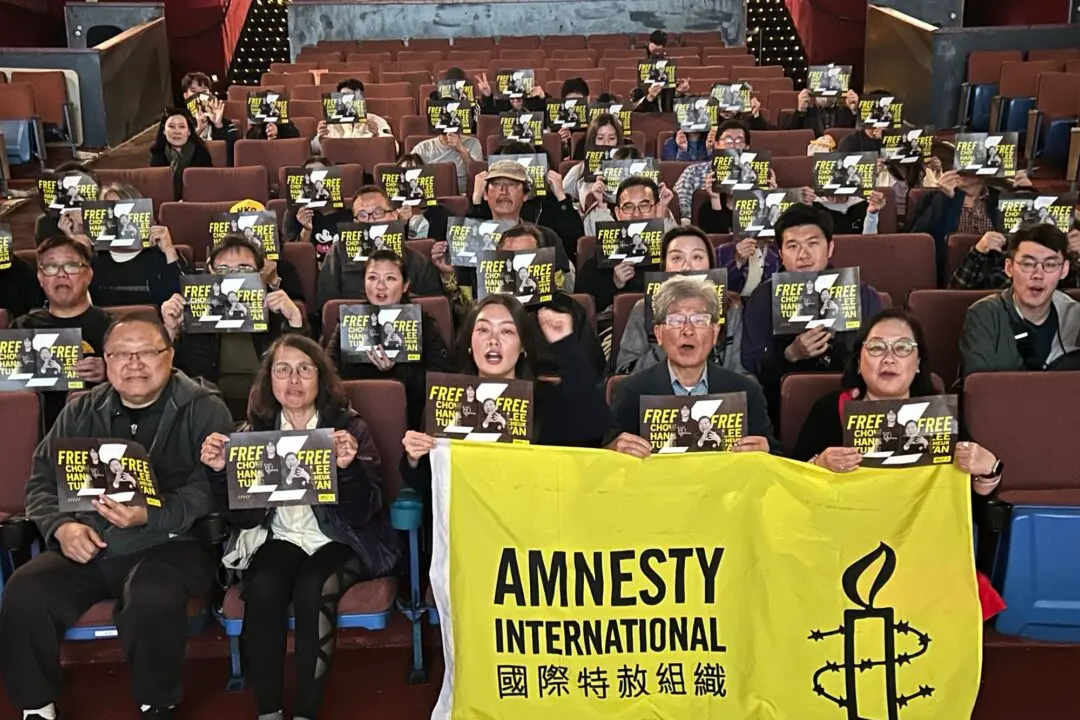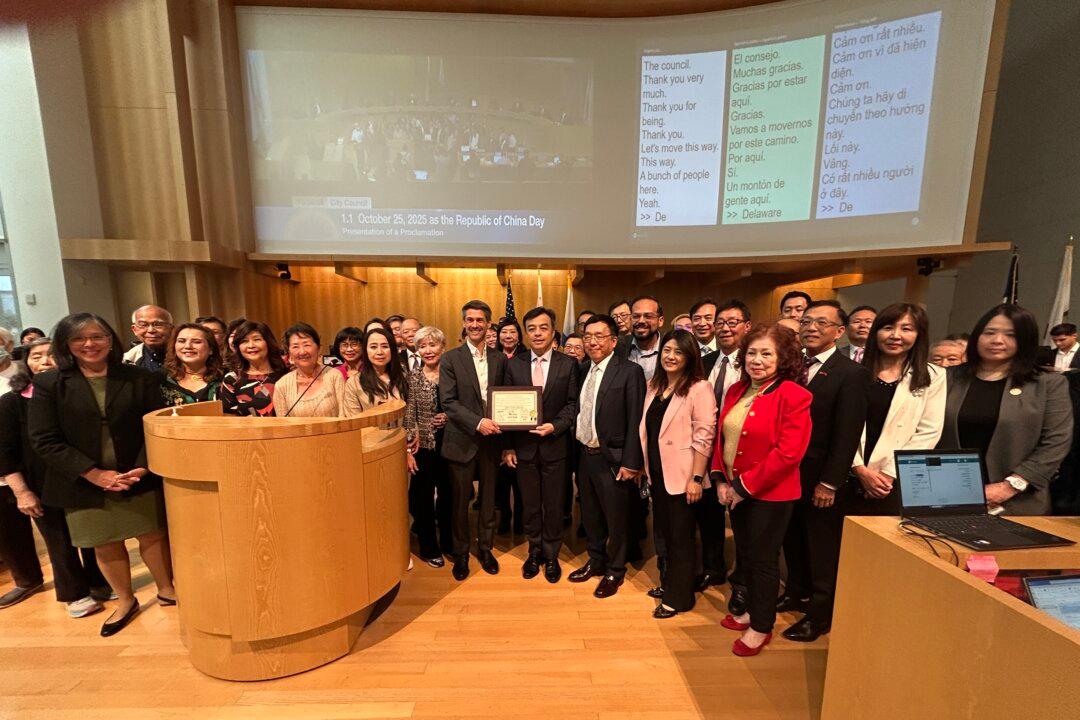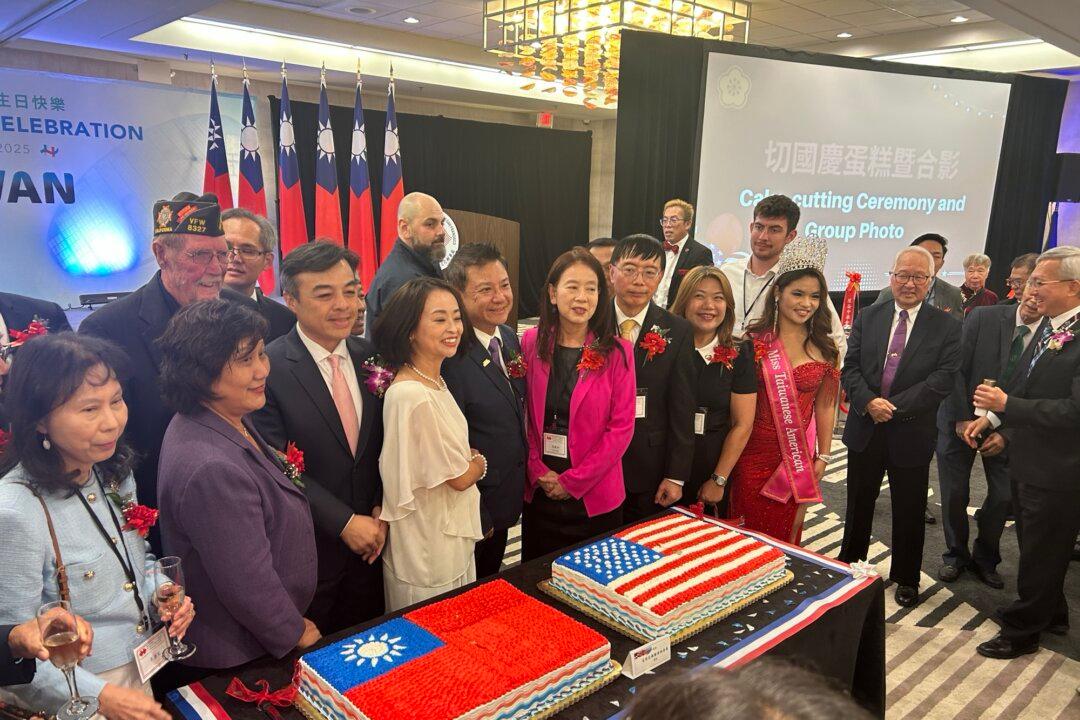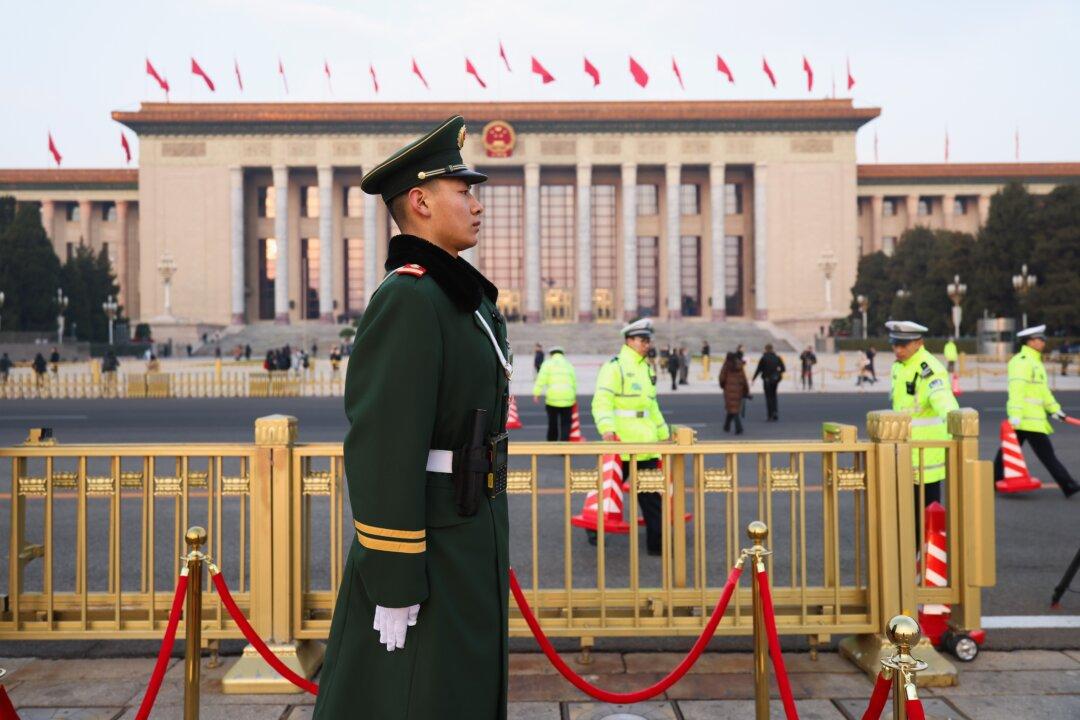MILPITAS, California—With hundreds of protesters jammed into City Hall, the city council of Milpitas, California, unanimously approved a complete ban on commercial marijuana.
The original agenda for the Nov. 20 council meeting was for city staff to present their findings and proposals for commercial operations of marijuana business in the city, but the meeting turned into a rally by local residents who expressed their moral outrage against the cannabis industry.
